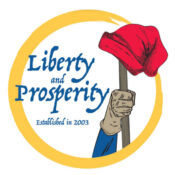The miracle we call the Constitution
By Seth Grossman, Political Columnist
Monday, Sept. 17 was Rosh Hashanah, the Jewish New Year. It was also Constitution Day ? the day 39 delegates from the original 13 states agreed on a new Constitution in 1787
Eleven years earlier, on July 4, 1776, 56 delegates from those 13 former British colonies had declared their independence. Each state had its own government, laws, taxes, and armed forces
For the next 16 months those delegates met and argued over how to unite those 13 states into a country strong enough to defeat the British Empire.
In November of 1777, they finally agreed on a document called the Articles of Confederation. Each of the 13 states had a single vote in a new Congress. This Congress was given the power to conduct foreign policy, declare war, make peace, and raise and support a national army to supplement the 13 state militias. It had no power to tax, and could only request the 13 independent state legislatures to pay for their fair share of the national government.
But few did. For 10 years, Congress took out loans it could not pay back. It also tried to pay its bills with paper ?Continental Dollars? that were not backed by gold or silver and ?were not worth a ?Continental?.
George Washington was a genius for somehow keeping his army together. So were Ben Franklin and John Adams ? our ambassadors who persuaded the French and Dutch governments to loan us money ? for eight years.
When the war ended in 1783, Americans had an even bigger problem with the Articles of Confederation.
Most of the 13 state governments collected high taxes on goods from other states, along with high license and permit fees. This crippled the economy, and caused hardship, anger, and even violence in many states.
The elites who ran England, France, and Spain gloated over the failure of the ?American Experiment.? Each country made plans to grab pieces of our failed nation. But then a miracle happened.
In 1787, George Washington, now just a private business owner, persuaded all 13 state legislatures to send delegates to meet in Philadelphia and fix the Articles of Confederation.
Four months later, on Sept. 17, 1787, they agreed to replace the Articles of Confederation with a new Constitution that would ?form a more perfect union.? When they ran into opposition, they quickly drafted 10 amendments, a ?Bill of Rights? that further limited the powers of the proposed new national government.
One year later, in 1788, most states ratified the new Constitution including the Bill of Rights. George Washington was then elected to be our first president.
The effect was dramatic. The economy boomed. People moved out of corrupt, poorly run states like New York and Rhode Island with high taxes and oppressive regulations. They moved into states like New Jersey with low taxes and few restrictions.
People freely moved themselves and their merchandise throughout all the states and federal territories from New Hampshire to Georgia without tariffs or passports. With a strong national government to protect them, Americans built and sailed ships that sold our products all over the world.
Although the 1787 Constitution permitted the continued enslavement of blacks in the southern states, Abraham Lincoln, in his carefully researched Cooper Union Speech of 1860, showed how most of the 39 framers of the Constitution inserted provisions designed to contain and limit slavery, and ?set a course for the ultimate extinction? of that evil. See http://showcase.netins.net/web/creative/lincoln/speeches/cooper.htm.
The Constitution is a short document written in simple language that is easy to understand. Until the progressives took over the schools in the 1930s, it was required reading for every eighth grader.
Today, most students who finish college have never read the Constitution. Last week, Stockton College observed Constitution Day by paying Anita Hill to talk about ?Sexual Harassment at the Workplace.?
You can read the Constitution at http://www.heritage.org/constitution. Or buy a copy for a dollar at my law office or at any?libertyandprosperity.org breakfast meeting.
You will then understand that Congress is supposed to deal only with national problems that can?t be handled by state and local governments, and how the Commerce Clause of the Article I, Section 8 was never intended to give Congress the power to ban local use of marijuana or sports betting ? or to pay for local sand dunes, schools or fire engines. It was instead intended to stop states like New Jersey and New York from crippling interstate commerce with taxes like the outrageous $12 tolls on the Hudson River bridges and tunnels.
(Reprinted from September 19, 2012 Current-Gazette Newspapers of Atlantic and Cape May Counties, http://www.shorenewstoday.com/snt/news/index.php/politics/29726-the-miracle-we-call-the-constitution.html)
Somers Point attorney Seth Grossman appears on 92.1FM 8-9 a.m. Saturday. For information see www.libertyandprosperity.org, email sethgrossman49@gmail.com or call (609) 927-7333. Breakfast discussions are held 9:30-10:30 a.m. every Saturday at the Shore Diner on Fire and Tilton roads in Egg Harbor Township.
(Image Source – http://1.bp.blogspot.com/-eA7M2owArKI/UAw7CdL9oTI/AAAAAAAACZw/6pixzS_zz_M/s1600/We-the-People.jpg)

